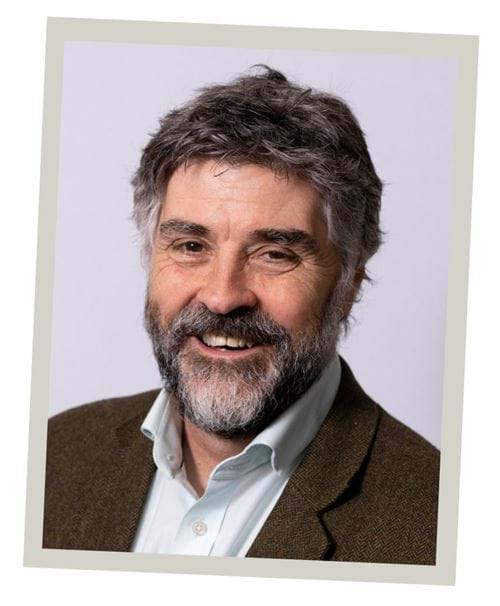ChemEng Culture – Issue 1008
When Culture Kills: Lessons from a Safety Psychologist
Tim Marsh speaks to Sam Baker about his 30-year career in occupational health and safety and argues that no discussion of process safety can be complete without considering workplace culture and mental health and wellbeing

TIM MARSH hasn’t always been a safety psychologist. His first job after university was as an accountant – an “aberration”, he tells TCE, that followed his undergraduate degree in psychology. His bean counting stint was short-lived and he returned to the University of Manchester to complete a PhD in occupational psychology, graduating in 1992. “Being a psychologist is much more fun than working with numbers,” he says.
His book, Wisdom & Wit from a Safety Psychologist, spans the last 16 years of his career as an occupational health and safety consultant and sees Marsh reflect on how occupational health and safety has evolved – and where key challenges persist. The articles included in Wisdom & Wit are compiled from his contributions to the health and safety trade press, and all return to a common message: when things go wrong, culture is almost always, at least partly, to blame.
In several of the book’s articles, Marsh returns to some of the most famous examples of process safety disasters, including the 2010 Deepwater Horizon oil spill. In one article from 2013, Marsh wrote that safety inspectors who visited the bp oil rig in the Gulf of Mexico a day before it exploded “had several opportunities to initiate conversations that may well have identified the problem, but they kept to personal safety issues…because challenging such competency was considered rather insulting; it simply wasn’t what they did during these visits”.
Marsh is sceptical of the general formula used to respond to process safety incidents, telling TCE that there is a “terrible sameness” to inquiries that try to find the causes of a disaster each time an investigation is launched. “You would think we’re incapable of learning,” he says. Fifteen years on from Deepwater Horizon, Marsh maintains that he doesn’t see a “clear division” between process safety and behavioural safety.
Marsh also laments boardroom decisions that prioritise short-term gain, pointing to the two Boeing 737 MAX crashes in the space of five months in 2018 and 2019 which killed 346 people. “Everything seems to have gone wrong” since the decision was made to move the company’s headquarters from Seattle to Chicago, which he believes was a sign that Boeing had gone from being a corporation “driven by engineers” to one “driven by accountants”. He adds: “[CEOs] are long on golf courses by the time decisions they make about strategy and design actually bare bad fruit.”
Memories of Aberfan
Marsh describes himself as a “chippy Welshman”, although confesses to being “all posh these days” as a visiting professor at Plymouth University. He’s also a raging, potty-mouthed lefty. When talking about how his upbringing in a south Wales mining village shaped the values he has worked to throughout his career, he says he is “by instinct on the side of the people who do the jobs, take the risks, and less so on the side of the people at the top who make all the money and then f**k off to a golf course in Spain”.
Marsh’s devotion to safety, and how it can be tainted by workplace culture, was influenced by the 1966 Aberfan disaster in south Wales, just 15 miles from his hometown of Newport. The disaster killed 116 children and 28 adults when a primary school and nearby houses were engulfed in colliery sludge after a spoil tip collapsed. It prompted allegations of a cover-up by the National Coal Board (NCB), which was later found to be wholly responsible.
Marsh was very young at the time of the Aberfan disaster. “Once I got into the world of safety,” he says, “I started reading up on things like Aberfan, and in particular the behaviour of the coal board.” He cites the NCB’s response to the disaster – infamously claiming it was unaware of a spring beneath the tip, despite it being marked on an ordnance survey map – as an example of the board’s “despicable” behaviour.
Marsh adds that the more he learns about Aberfan, the more it “stokes a blind fury, and you just want to go and do something that might help in a situation like that”.
Mental health matters
Recent Editions
Catch up on the latest news, views and jobs from The Chemical Engineer. Below are the four latest issues. View a wider selection of the archive from within the Magazine section of this site.




